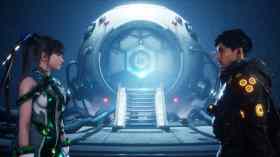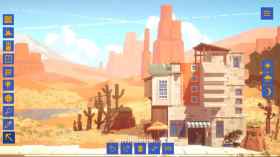In Stars and Time being a turn-based RPG with quirky characters was expected. Taking on strange enemies using a literal rock-paper-scissors battle system was expected. It’s all there in front of you, from the jump – a black and white world, observed from above as if peering into a lovely little diorama, with a cute little town, an ominous castle and an evil king perched at its peak. It’s fantasy gaming 101.
Then, you begin. You approach the castle, ascend an impressive stairwell, enter the first corridor, then are summarily crushed by a giant rock. Luckily, this is a time loop RPG, so you start again. Repeat ad-nauseam until you slay the king. You triumph and win the day, and then… that’s the end of Act 1.
What follows is a carefully unfolding tale of dramatic yet intensely personal proportions. An exploration of selfhood, of memory, of change. Where cosmic power fuses with profound human emotion, while threads of a tantalising mystery draw you from question to discovery, to more questions and more discoveries.
The size of the impact this creates is a little less expected.
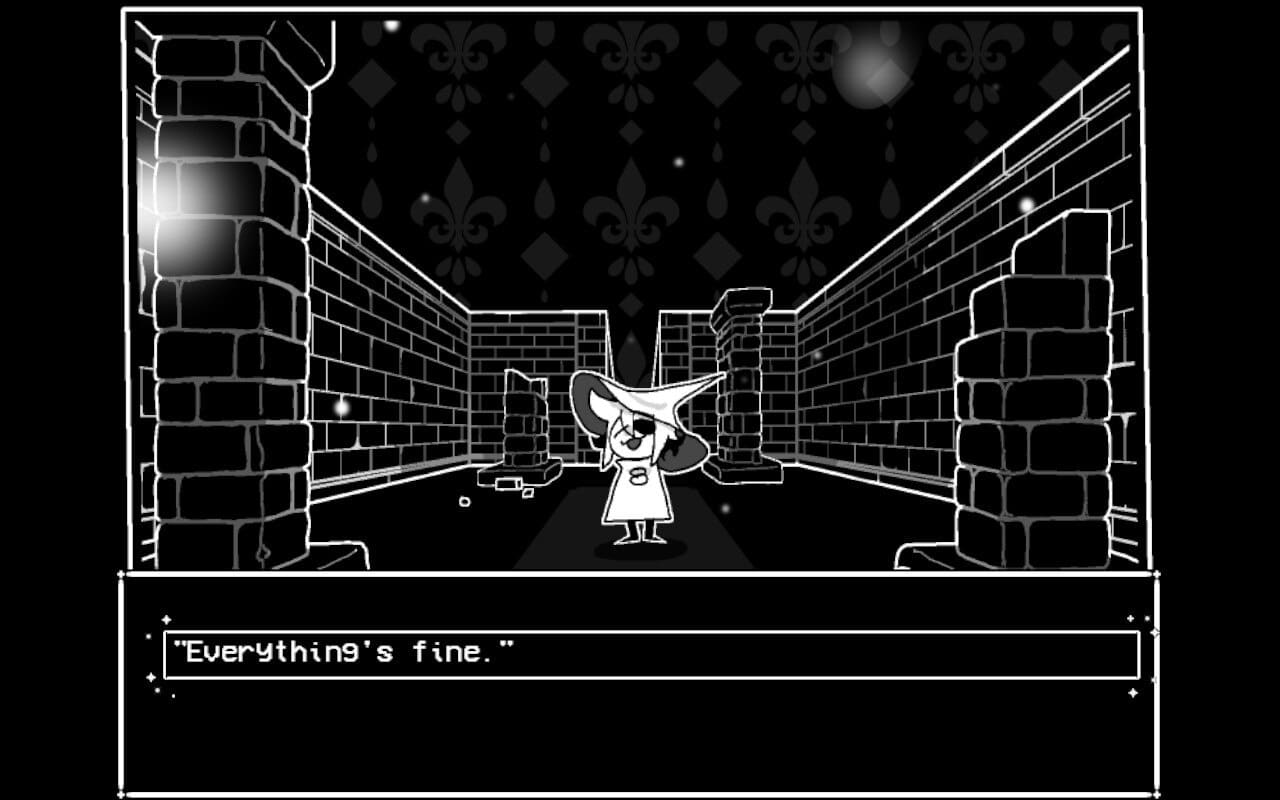
At the centre of In Stars and Time sits your point-of-view character Sif, alongside their RPG party of misfits – Mirabelle the blessed house maiden, Odile the knowledgeable researcher, Isabeau the talented fighter, and Bonnie the preteen chef. You come in at the end of their RPG journey, with each of them already having built up a complex web of bonds between them.
Very quickly, the battle system and the “Save The World” narrative become secondary to the interpersonal links among party members. In a surprisingly small spatial area – the town is four small areas, with the castle containing three floors of no more than a dozen rooms each with linking corridors, reminiscent of top-down Game Boy classics like Pokemon or Zelda – exploration takes a back seat. Being a time loop RPG, you become intimately familiar with these spaces over the course of 20+ hours, so what you do within them matters much more.
Almost every cupboard, chest of drawers, bookshelf and desk becomes a jumping-off point for conversations amongst the crew, whether that’s reading through a haunting poem, or reminiscing about the last time they played checkers together.
Not only are these interactions intensely human and a joy to read through, every single bit of text builds out these characters and this world in subtle ways that absorb you in its fiction. This is important, because often what might seem like an off-the-cuff comment about a favourite food might become key to the wider-reaching plot further down the line. Not a morsel of dialogue is wasted. A thoroughly thought-out world full of history, religion and different ways of living life awaits to be delved into.
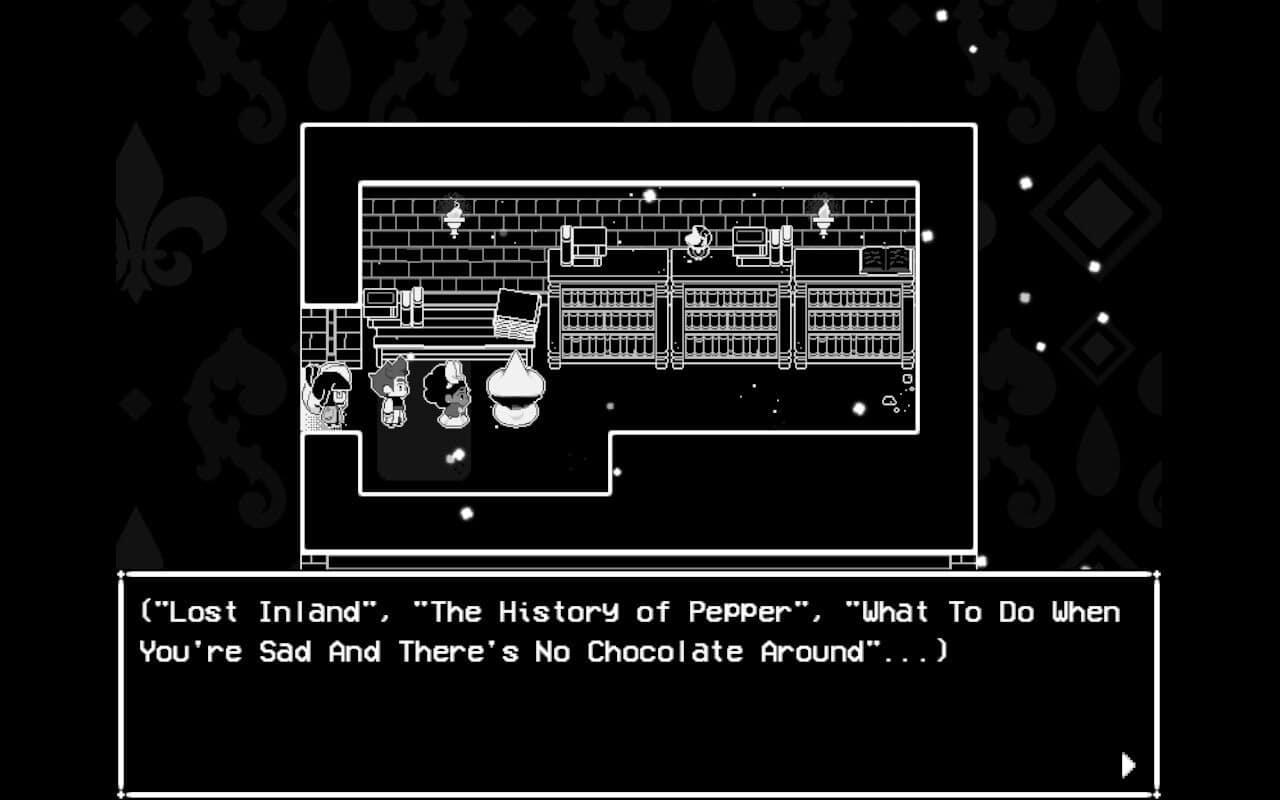
This heavy attention to detail can lead to some slower-paced sections throughout the experience, though nothing so serious as to fully detract from it. There’s a lot of fleshing out to be done through the beginning, particularly if you’re the type of person to fully comb over areas before moving forward. A certain in-game character you meet after your first loop does a lot of winking at both Sif and the player to hint at what is and isn’t important – you don’t need to click on every barrel, for example – and help guide you towards what threads you should pull on next.
These threads lead to a wide gamut of serious topics that never feel forced or edgy in the slightest, with no topic left off the table. Every delicate discussion your party and other characters get into is handled with the utmost care and consideration. Even the darkest of discussions are approached with a level of maturity you just don’t see very often in media broadly, let alone in games.
If the narrative leads to a discussion about death, or the implications of painful suicide by your own hand, it will be presented in a thoughtful and compassionate fashion. Different characters will have their different perspectives, and discuss their points of view. It’s always considerate, never patronising – even when the discussions involve the preteen. The dialogue gives all of its characters – and by extension, you – the highest level of respect.
In Stars and Time provides the space for a measured thought process to be laid out and examined. Baked into the very fabric of the world you are exploring, the central religion of the country – and by extension practised by several members of your party – fundamentally allows for these conversations to flourish without defensiveness or provocation. It sadly shouldn’t feel like this, but it’s utterly refreshing to be able to see these types of conversations play out with thoughtful discussion and mutual respect being so central.
Even with such broad-ranging topics with amazing depth in discussion, the game never veers from its focus on the central cast. This is a fiercely personal story, despite the typical world-shattering consequences that you will face. Your heart breaks for Sif at times, while at others, you just want to shake him. Every other crew member has their personhood delved just as deeply, with emotions bared, flaws explored, and challenges overcome.
The way they each have personal nicknames for each other; how each of them cares so deeply for one another, whether it’s being cognisant of an aversion to touch or a genuine appreciation for the way someone prepares snacks; the faces they put on and the personal secrets that lie beneath.
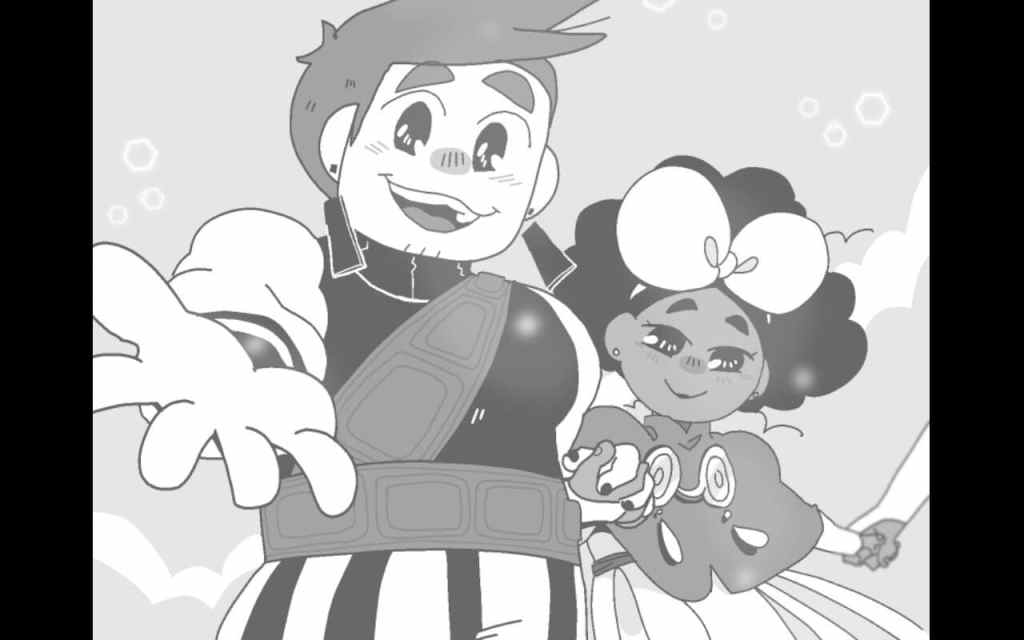
With the storytelling micro and the macro of this world and its inhabitants being so fantastic, it is a shame the battle system is just slightly too basic. It’s not bad, by any stretch – it’s simply functional. There’s already some hand waving done to accommodate for the time loop concept – characters keep any gear you find as you play, however, all other items and experience are reset every time (other than Sif’s, because he remembers each loop). This creates a catch-22, where characters need to be strong enough while still feeling like levelling does something, but you also don’t want to have to grind every single loop just because you need to be a certain level to win.
This wouldn’t matter in the slightest for a five-hour RPG, but it definitely starts to stretch by the 20-hour mark here. The game does cleverly reflect this in a few areas, particularly towards the very end, but battles never really evolved during that time.
Thankfully, the design errs on the side of never gating you.
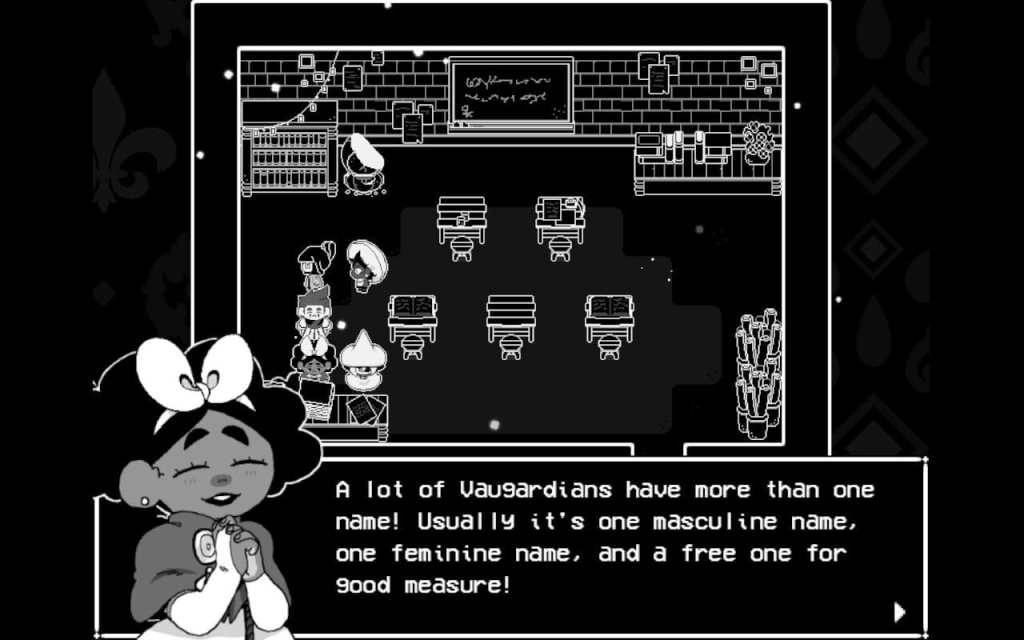
Getting wrapped up in this seemingly innocuous little RPG has largely been an utter delight. There are so many little interactions, so many bespoke bits of information and neat little side narratives to explore and solve, that discovering every tidbit sets your neurons firing.
In Stars and Time is the type of game that is excellent to discuss theories and nitty gritty details with a friend, an element which adds to an already thought provoking experience. With a cast of exceptionally loveable characters to tether you to its remarkable world, it will stick in your mind long after you’ve put it down.
4 stars: ★★★★
In Stars and Time
Platform: PC, Switch, PS4, PS5
Developer: insertdisc5
Publisher: Armor Games Studios
Release Date: 21 November 2023
The PC version of In Stars and Time was provided and played for the purposes of this review. GamesHub reviews are scored on a 5-point rating scale.




